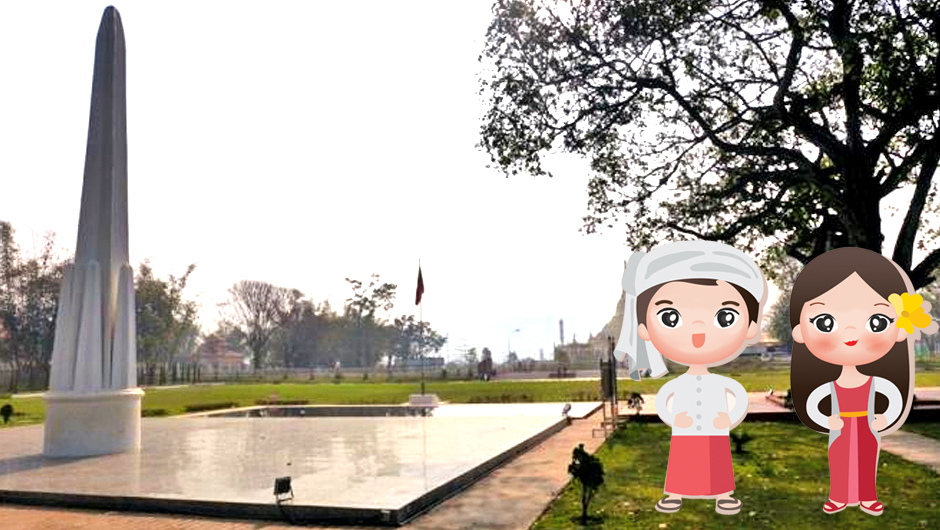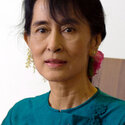Myanmar's Freedom Journey

Myanmar’s struggle for freedom has been long and arduous. Its journey towards democracy has been interrupted by wars, colonialism, and militarization resulting in political, economic, and social instability. It has been a slippery slope, but a mountain worth the climb.
The country was a colony of Britain for over a century. Finally on 27 January 1947, Aung San, the Premier of the British Crown Colony of Burma at that time, and the British Prime Minister signed an agreement in London guaranteeing Burma’s independence within a year.
Following this, another monumental treaty was reached on 12 February 1947. The Panglong Agreement was signed between Aung San and ethnic leaders warranting the independence of Burma as a unified state, and granting full autonomy in internal administration for the Frontier Areas that included Shan, Kachin, and Chin.
As the road to independence was being galvanized, Aung San and several cabinet ministers were assassinated by armed paramilitaries in July 1947. Aung San’s role in securing independence from British rule and in unifying the country earned him the title Father of the Nation of modern-day Myanmar.
Aung San’s political prominence is sustained by his daughter, Aung San Suu Kyi who is currently the State Counsellor of Myanmar.
Military dictatorship
Burma’s way to freedom and peace was interrupted in 1962, when the military led by General Ne Win performed a coup d’état resulting in a military dictatorship in the following years. The military's motivation to take over control was the ongoing rampant ethnic strife and the push for autonomy or federalism by non-Burman ethnic groups. The numerous ethnic groups in Burma have been involved in one of the world’s longest ongoing civil wars, and the civilian government at the center has been perceived as too weak.
Though incorporated in the 1947 Constitution, the military government interpreted the use of the term ‘federalism’ as being anti-national and anti-unity and took action against these struggles. Almost all aspects of society, as business, media and production, were nationalized or brought under government control. Sporadic protests against military rule were held in Yangon, many of them led by students. These protests were almost always violently suppressed and many people were killed and imprisoned.
In 1989, the military government changed the English translations of many names dating back to Burma's colonial period or earlier - "Burma" became "Myanmar". The renaming remains a contested issue as many people do not recognize the legitimacy of the ruling military government or its authority to rename the country.
The Lady
After completing her studies abroad, Aung San Suu Kyi returned to Burma in 1988. Seeing the abuses of the military junta, she led the calls for the country’s democratization. In the aftermath of the pro-democracy protests, she found the National League for Democracy (NLD) as a political platform with issues of democracy and human rights at the fore of the agenda.
Considered a threat, Suu Kyi was placed under house arrest in July 1989. The government offered her freedom if she left the country, but she refused. Since then, she was detained for a total of 15 years over a 21-year period on numerous occasions.
In May 1990, the government held elections for the first time in almost 30 years. NLD won 392 out of a total 492 seats. However, the military refused to cede power and continued to rule the nation until 2011.
Suu Kyi was awarded the Nobel Peace Prize in 1991 for her campaign for democracy.
You should never let your fears prevent you from doing what you know is right... The only real prison is fear, and the only real freedom is freedom from fear.

The road to free elections
A referendum process began in 2008, and general elections were held under the new constitution in 2010. NLD boycotted the elections because of “unjust electoral laws,” which required the party to expel its leader Aung San Suu Kyi.
The military-backed Union Solidarity and Development Party declared victory in an election that was deemed fraudulent. Six days after the elections, the government released Suu Kyi, believed to have been done to mask the rigged results.
In 2011, the military junta was officially dissolved, and a nominally civilian government was installed, ending nearly 50 years of military rule.
In the landmark 2015 election, the first openly contested elections held in Myanmar since 1990, the NLD won a majority in both houses in parliament. Even though the NLD won an absolute majority of seats that was enough to ensure that its candidate would become president, Suu Kyi was constitutionally barred from the presidency.
Htin Kyaw was elected as the first non-military president since the military coup of 1962, and Aung San Suu Kyi became State Counselor, a position similar to the role of a Prime Minister.
Following Htin Kyaw's resignation, former lower house speaker Win Myint became Myanmar's 10th president since independence.
A new dawn
The new political climate in Myanmar ushered in a number of developments especially in the economy. Foreign investments flowed in, and the country became Asia’s newest fledgling democracy and the world’s fastest-growing economy, according to the International Monetary Fund. This shows how political reforms pave way to economic growth. It reaffirms that representative and inclusive democracy can deliver prosperity.
However, there are differing opinions regarding the institutionalization of democracy in Myanmar. The Burmese military remains a powerful force in politics as they hold 25% of the seats by law. The government's treatment of ethnic minorities and its response to the ethnic insurgencies continue to attract criticisms. There are also growing concerns on the curtailment of press freedom.
Myanmar’s freedom journey still requires many transition steps to allow it to fully ascend, and live its promise of real democracy that respects human rights and rule of law. The climb is steep, but not as precipitous as what the country would lose if it allows democracy to slip once more.
FNF has supported the democratic transition of Myanmar by promoting economic freedom, rule of law, and liberal democracy. It opened its office in Yangon in 2013.
The Foundation is currently working together with government institutions, parliamentarians, judges, lawyers, and the civil society to support strengthening democratic institutions, improving the economic viability of small and medium enterprises through policy reform and fair competition, strengthening legal frameworks to improve rule of law, tackling corruption, and enhancing the capacity of relevant stakeholders.